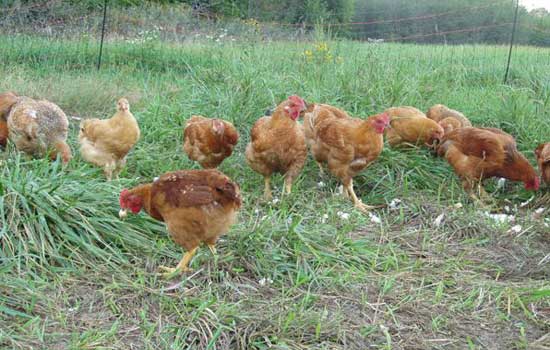Immortal Meals #28: Freedom and Chicken March 29, 2016
Author: Beach Combing | in : Medieval , trackback
The date, sometime in the 1440s; the place, the English village of Long Newnton in what is today Gloucestershire; the meal, a table of chicken; the host, Thomas Carter; the occasion, Thomas’s freedom.
Thomas Carter had been born a bondsman sometime in the 1370s around the time Richard II was crowned king and the first English poll tax was introduced. In this England his status of bondman was branded onto him like the mark of Cain and while not a slave, neither was he a free man. He had clear obligations to the local lord; in this case an ecclesiastical lord, the Abbot of Malmesbury. Thomas lived all his life as a bondsman carrying out annual servile tasks for ‘his’ abbot. But as he came to the end of this life Thomas became impatient with the burden of his birth: ‘he was very aged and had not many yeres to lyve, yet natheleas he had a greate mynd that his heires and blode after him might be free and that he might be free [before] he died and if he might bring that aboute it wold be more joifull to him then any worlelie [loved this spelling] goode’.
The details of how Thomas got his wish are not very clear. Apparently two local gentle folk interceded with the abbot and negotiated a reasonable price. Thomas used his savings but still had to borrow money, including ten pounds from a neighbour (about 5000 pounds sterling according to the money converter at the national archive). Thomas was, you sense, a popular local character and those who knew him seem to have been ready to make sacrifices to help him achieve his goal before his death. Then the great day came and Thomas and his buddies travelled to the abbey, handed the money over to the abbot (his now ex-lord) who signed the manumission papers before Thomas. Then ‘the said Thomas Carters frindes went forth of th abbey into th town of malmesberre and there they [ate] a cople of Capons…’ Thomas Carter was an old man, but how wonderful that chicken must have tasted…. The Sunday after the parish priest had read out the manumission and then Thomas put on a party for the villagers.
We only have this account because Thomas’ grandchild, Robert had to fight, in 1500, for his right not to be made to work as a bondsman: he was beaten up when he refused and his livestock were confiscated by the abbey staff; Robert in fact was clearly a wealthy man and this may have been an attempt to ‘shake him down’. In the legal case that followed one John Newman, who had got Thomas the capons on that wonderful day sixty years before, came to bear witness to the manumission and the meal that followed. It is interesting that the celebrations that followed fixed the event: and Robert’s argument, made before the Star Chamber, depended not on documents but on the memory of those who had seen his grandfather freed and who had drunk beer and had eaten chicken on his account.
Source Wood, The Memory of the People, 43-44


